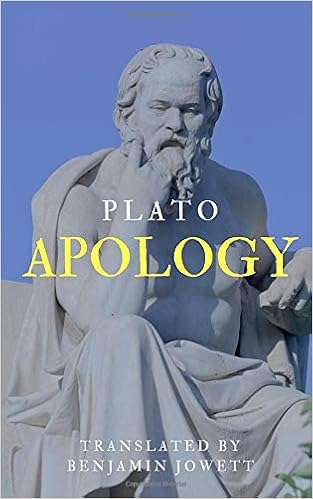In his ‘Apology‘, Plato attributes the now famous words to Socrates,
The unexamined life is not worth living
Now, whether or not that’s true, the unexamined life is certainly needlessly painful, both for oneself and for others.
Painful or not, the unexamined life is certainly less interesting. We really spend our lives learning how to live.
This isn’t necessarily as absurd or tragic as it sounds. Most of us find a pattern of living which makes approximate sense, and tinker with it for decades.
If you’re lucky, you will discover that you can live more or less the way you want. But, even if you’re lucky, you will find it is possible to want the wrong things.
To be lured into squandering your time and attention. To be bewitched, in a way, by things that don’t really matter.
Even if you’re lucky, happiness can be surprisingly elusive.
Why Mediate or Have a Mindfulness Practice?
The basic logic is quite simple. The quality of your mind determines the quality of your life.
Happiness and suffering no matter how extreme are mental events. The mind depends on the body, of course, and the body depends the world but everything good or bad that happens in your life must appear in consciousness to matter. To know this fact offers ample opportunity to make the best of bad situations because changing how you respond to the world is often as good as changing the world.
Of course, you can try to change the world. You can try to get everyone around you to behave exactly as you want. You can try to never get sick or injured. You can try to prevent your favourite possessions from getting damaged or lost.
But, try as hard as you might the sources of stress, disappointment and self-doubt will always be there.
Happily, there’s another game to play and not everyone knows about it. Rather than trying to change the world and each moment, there is another move open to you.
You can look more closely at what you’re doing with your own mind and actually cease to respond to life in ways that produce needless suffering for yourself and those around you.
When we are lost in thought, there’s certain things we tend to not notice about the nature of our minds.
For instance, every thought or feeling you’ve ever had, good or bad, has arisen and then passed away.
The anger you felt yesterday, or a year ago, isn’t here anymore. It arises in the next moment, based on your thinking about the past, it will once again passed away when you are no longer thinking about it.
This is a profoundly important feature of the mind. It can be absolutely liberating to understand it deeply.
If you do understand that deeply, that is, pay clear attention to the rising of an emotion like anger, rather than merely thinking about why you have every right to be angry, it becomes impossible to stay angry for more than a few moments at the time.
If you think that you can stay angry for a day or even an hour without continue manufacturing this emotion, by thinking without knowing that you’re thinking, you are mistaken.
This is an objective claim about the mechanics of your own subjectivity and you’ve got to test it.
Meditation is the tool you would use to test it. I can’t promise you that you won’t ever get angry again, but you can learn not to stay angry or fearful or embarrassed, etc, for very long.
When talking about the consequences of negative emotions, in the real world and in your life, the difference between moments and hours or days and weeks is impossible to exaggerate!

Now… this is not to say that external circumstances do not matter but it is your mind rather than the circumstances themselves that determines the quality of your life.
Some people are content in the midst of real deprivation and danger whilst others are miserable despite having all the luck in the world. There are practices that allow us to break this habit of being lost in thought.
Simply become aware of the present. Be in the moment.
The main one is known as vipassana, which is generally translated as ‘insight meditation’ . It comes from the oldest tradition of Buddhism known as the theravāda.
The quality of the mind cultivated in vipassana practice is almost always referred to it as mindfulness.
There’s nothing spooky about mindfulness. It is simply your state of clear undistracted attention to the contents of consciousness whether pleasant or unpleasant.
This practice has been shown to produce long-lasting changes in attention, emotion, cognition and pain perception.
These correlate with both structural and functional changes in the brain.
Mindfulness is now very much in vogue, of course, but there are still many misconceptions about it. It’s often talked about and marketed as though it is merely an improved version of a stress ball, when it is really more like the Large Hadron Collider, in that it is a method for making profound discoveries, in this case about the nature of our own minds.
There’s nothing passive about mindfulness.
You could even say that it expresses a certain kind of passion. A passion for discerning what is subjectively real in each moment. Being mindful is not a matter of thinking more clearly about experience. It is the act of experiencing more clearly, including the rising of thoughts themselves.
One of the great strengths of this technique of meditation, from secular point of view, is that it does not require us to adopt any cultural affectations or unjustified beliefs. It is simply means that we pay close attention to the full very experience in each moment.
It is recognising what is already rising in consciousness in each moment without modifying it. Without assessing whether it’s pleasant or unpleasant. Without pushing what is unpleasant away in some sense.
Meditation is the act of doing less than you normally do. It is the act of being less distracted in the midst of everything that is already happening on its own.
Once one is less distracted, one finally has a tool with which to notice truths about one’s mind that will never be noticed indirectly.
Yours optimally,
Scott
Read more… Mindfulness meditation offers help with the travails of chronic illness
3 Mindfulness Secrets: How to be more mindful and improve your everyday performance
Why Meditate or Have a Mindfulness Practice?
Source: https://dynamic.wakingup.com/course/1d74ed



thanks for your post these meditation is quite good after few months we start to feel change out nature of life subscribed to your blog for move amazing posts.